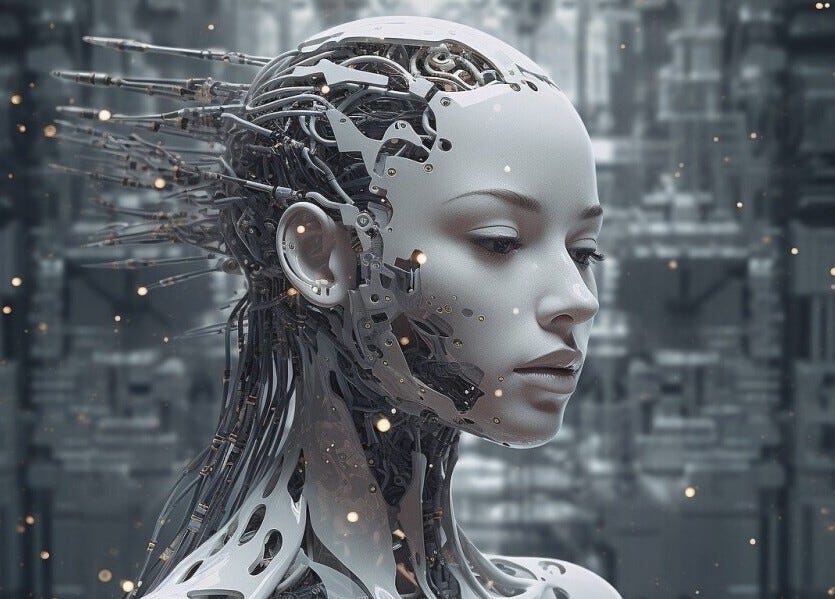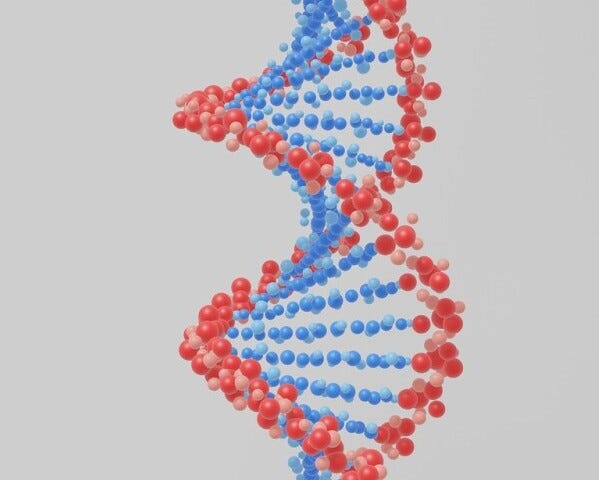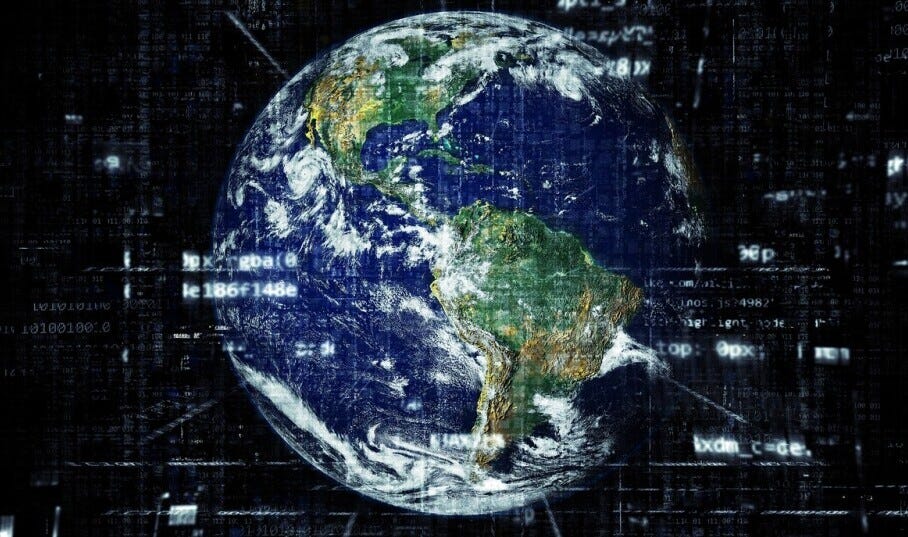Disruptive technologies are shaking up the status quo, pushing us into an era where traditional systems and norms are being reimagined or even scrapped altogether. It is like we are on the edge of a revolution, with some game-changing players ready to flip the script on industries across the globe.
To get a handle on this tech wave, we are diving into five powerhouses set to change the game: Artificial Intelligence, Blockchain, Robotics, Biotechnology, and Renewable Energy. Each of these has the potential to reform how industries operate, shifting the very foundation of economic models, investment strategies, and market trends.
So, what does this mean for the average Joe? As these technologies converge, they promise exponential improvements that could completely upend existing business models. We’re entering an era where technology begins to dominate every aspect of the market, from the way we pay for things to the currencies we use, with blockchain and DeFi (Decentralised Finance) leading the charge.
As AI — especially Artificial General Intelligence — soars beyond human capabilities, it presents both thrilling opportunities and daunting challenges. People are buzzing with intrigue and a bit of apprehension about how AI will play out in our daily lives and on the global stage.
This rush into the exponential age calls for a rethink of how we approach global power dynamics. It’s becoming increasingly crucial to understand and gain autonomy over these technologies. Financial independence is more than a goal; it’s a necessity as these advancements continue to accelerate.
Artificial Intelligence: The Unpredictable Powerhouse
Artificial Intelligence (AI) is no longer the stuff of science fiction. It’s here, and it’s evolving faster than we ever imagined. With current AI boasting, at the very least, an IQ of about 120, it’s outperforming 90% of the global population. How wild is that? But here’s the kicker — the real question isn’t just what AI can do now, it’s what it’ll be capable of in five to ten years.

Peering into the future, AI is set to further integrate into our lives, affecting everything from how we work to how we interact on a daily basis. Picture this: automated customer service that actually understands you, or personalised healthcare that predicts medical issues before they become problems. It’s like your phone suddenly got a PhD.
But here’s where things get real. The unpredictability of AI’s journey means the potential for both dazzling innovation and challenging disruptions. Economies might sprout sectors we’ve never considered, and old industries could be upended overnight. These fast changes could create a whirlwind of opportunity or chaos, depending on who grabs them first.
So, what’s an example of disruptive technology in this realm? Think self-driving cars — they’ve already started to redefine transportation and alter urban planning. It’s not just about nifty gadgets; it’s a total shift in how we envision future cities. But as AI continues to march forward, ethics and regulations need to keep up to shield us from potential pitfalls. Balancing innovation and safety will be key.
For those navigating these choppy waters, staying informed and adaptable is vital. Keeping up with the pace might mean re-skilling or rethinking career paths, but that’s the thrill and challenge of living in our tech-driven world. Embrace it, and you’ll be riding the wave instead of watching it crash from the shore.
Blockchain and Decentralised Finance: New Economic Paradigms
The future of money isn’t just about going cashless; it’s about rethinking how we see currency and financial systems altogether. Enter blockchain and decentralised finance (DeFi), the tech mavens promising a financial makeover.

Blockchain is essentially a digital ledger on steroids, providing transparency and security that’s reshaping industries, especially finance. We’re talking about secure transactions without a middleman, which could cut costs and inefficiencies in ways previously unimaginable.
DeFi takes this a step further by offering financial services using blockchain technology — imagine a bank, but it’s online, runs on code, and doesn’t operate like anything we’ve known before. It’s fast, transparent, and gives control back to the user. That’s huge for financial inclusion, allowing people from different walks of life to participate in the global economy.
Example? Take Bitcoin and other cryptocurrencies — they’re not just about digital cash anymore. They’re pioneering new ways to invest and save money, ultimately challenging the very concept of ownership and currency as we know it.
This shift to a decentralised system means financial independence is becoming more important. Understanding and leveraging these technologies could bring about massive advantages. However, the transition isn’t without its challenges, like regulatory hurdles and ensuring cybersecurity.
Robotics and Biotechnology: Redefining Human Potential
Robots and biotechnology are no longer whispers of the future — they’re making waves right now. These cutting-edge technologies promise to boost productivity and reshape industries by adding a whole new layer to human capabilities.

Robots are stepping in to handle tasks that range from the mundane to the incredibly complex. They’re not just limited to factory floors anymore; think about healthcare, where precision robotics can assist in surgeries, or retail, where they serve as customer assistants. This integration could add a solid 10–20% to human productivity, revolutionising how work is perceived.
Meanwhile, biotechnology is pushing the boundaries of what we believe is medically possible. From CRISPR gene editing to advanced diagnostics, biotech is already altering healthcare landscapes with personalised treatments and even potential cures for various conditions. Each advancement brings a ripple effect, likely redefining employment, income distribution, and even social norms.
These tech evolutions prompt new questions about the future of jobs. Are we facing a future where humans need to redefine what work means or even consider universal basic income to mitigate disparities? The integration of robots and biotech in societal frameworks challenges us to think about equity and ethics.
Navigating this brave new world requires an openness to learning and adaptation. Engage with the changes, whether that means acquiring new skills or understanding the ethical dimensions of these technologies. By being proactive, there’s a chance to not just keep pace but set the pace in these rapidly changing times.
Renewable Energy: A Sustainable Future
Renewable energy is more than just a buzzword — it’s the cornerstone of a cleaner, more efficient future. With climate change breathing down our necks, the need to switch to sustainable resources is no longer optional. Solar, wind, and other renewable sources are on track to revolutionise how we power our world.

The shift towards renewable energy isn’t just about saving the planet (though that’s a major plus). It’s also about fostering productivity and creating new economic opportunities. Imagine a world where energy isn’t a limiting factor. That’s the kind of foundation renewable tech is setting up, giving industries the juice they need to innovate and expand without the carbon hangover.
Current advances in renewable technologies are breaking new ground, pushing down costs, and making it accessible to more parts of the world. This greater access could very well change the economic models we are used to, levelling the playing field and unlocking potential in developing regions.
Of course, transitioning to renewables isn’t without its hurdles. Infrastructure changes, political will, and initial investment costs pose challenges. Yet, as countries and companies commit to greener practices, innovation in energy storage and grid management is making this leap feasible.
For those looking towards the future, staying ahead means embracing these changes and understanding their implications. Whether that means investing in green tech companies, adapting businesses to use renewable energy, or learning about new energy policies, it’s clear that the renewable wave is one to ride. After all, helping fuel a more sustainable world might just be the most rewarding endeavour of all.
Click here for more information…
Disruptive Technologies: 5 Powerful Technologies That Will Revolutionise The Globe was originally published in The Capital on Medium, where people are continuing the conversation by highlighting and responding to this story.
